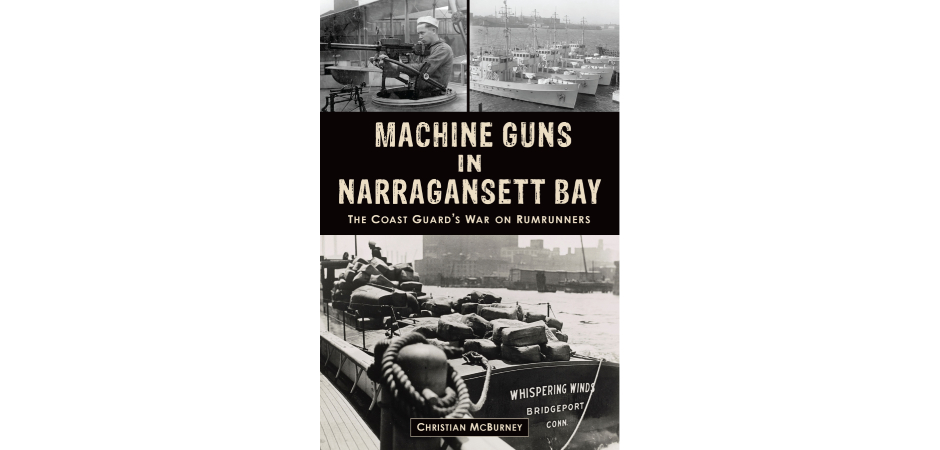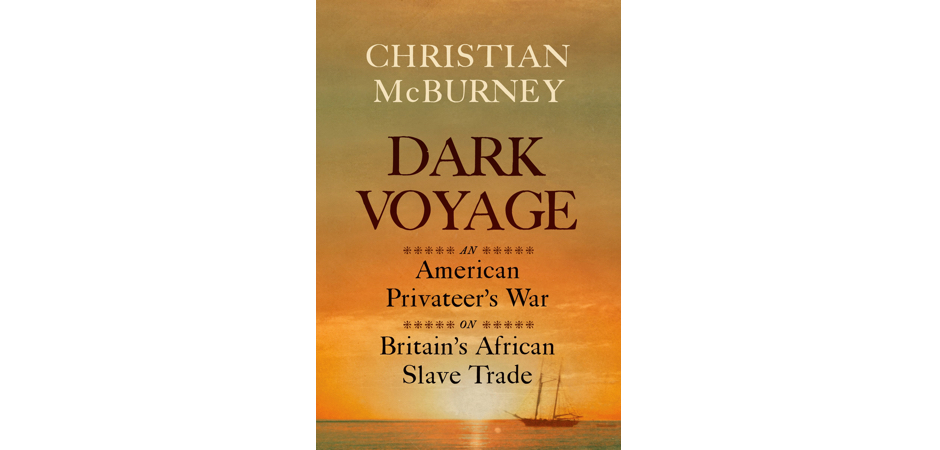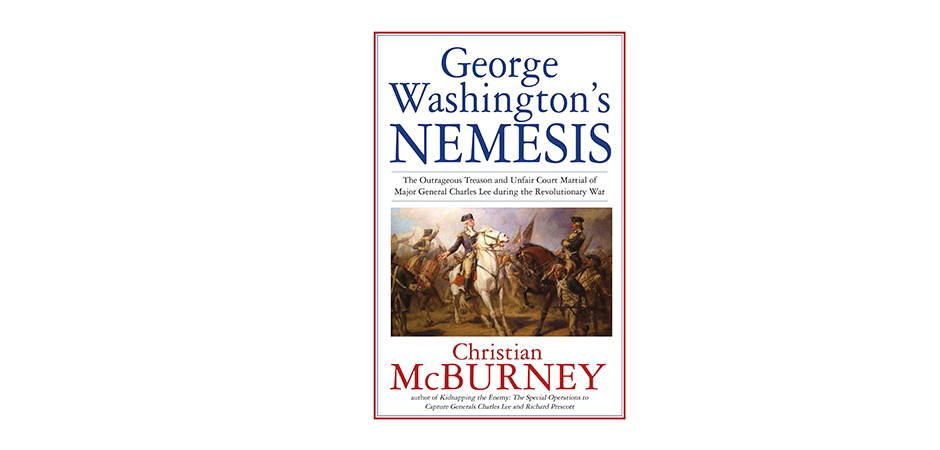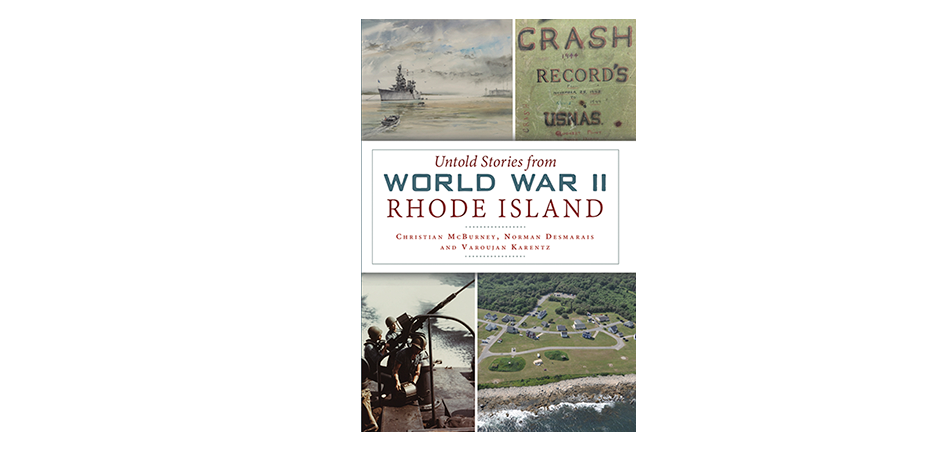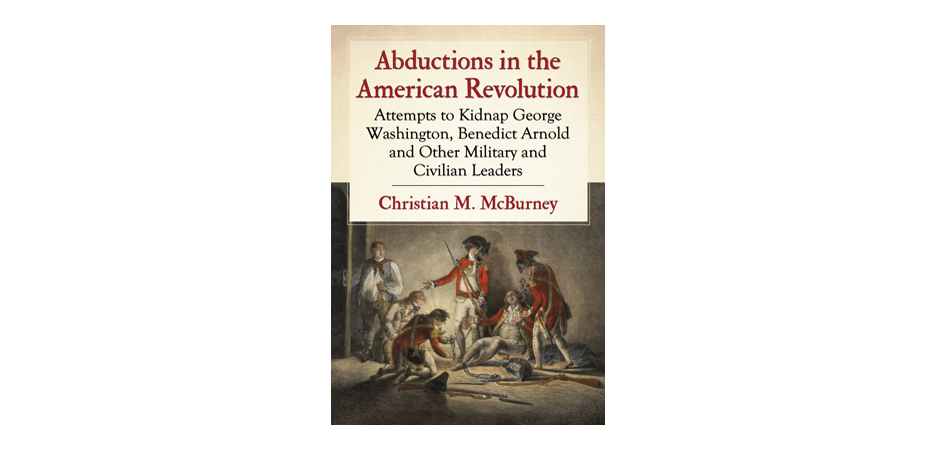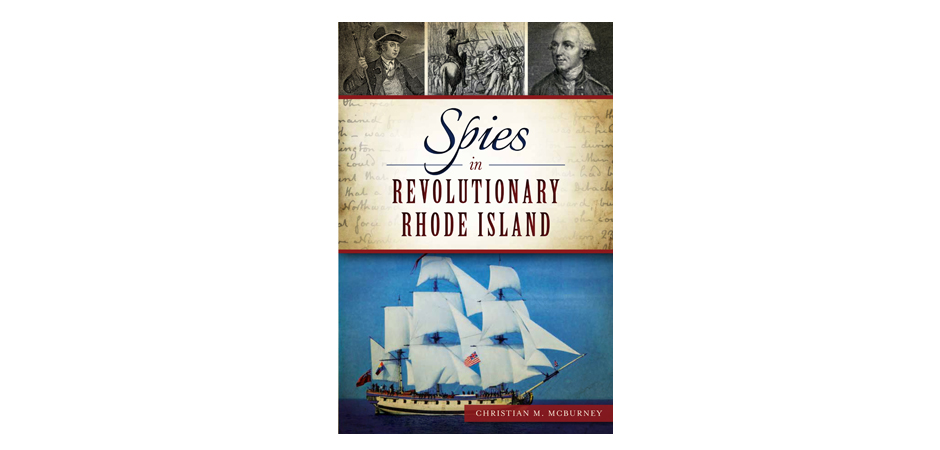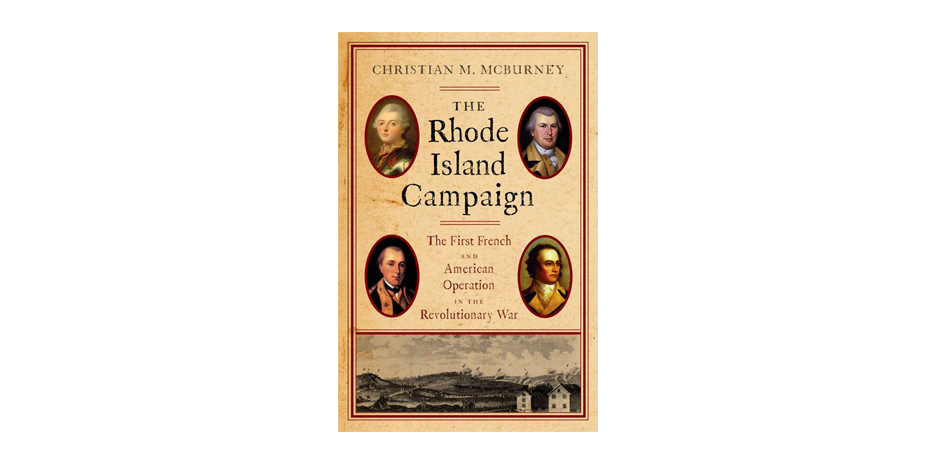Machine Guns in Narragansett Bay: The Coast Guard’s War on Rumrunners
During World War I and World War II, army and navy fortifications and artillery pieces surrounded Narragansett Bay, but no shots were ever fired in anger. By contrast, from 1929 to 1933 during Prohibition, Coast Guard vessels in Narragansett Bay and other Rhode Island waters fired thousands of machine gun and one-pound cannon rounds. . . at fellow-Americans. The intended [...]
Dark Voyage: An American Privateer’s War on Britain’s African Slave Trade
At the start of the American War of Independence, Great Britain dominated overseas commerce and was the leading slave-trading nation in the world. In 1776, American privateers—privately owned ships granted commissions by the Continental Congress to attack and disrupt enemy trade—began to prey on British merchantmen. Some privateers captured British slave ships with African captives on board just before they arrived [...]
George Washington’s Nemesis
George Washington’s Nemesis The Outrageous Treason and Unfair Court-Martial of Major General Charles Lee during the Revolutionary War Revolutionary War historians and biographers of Charles Lee have treated him either as a hero or enemy of the Patriot cause of American liberty. Neither approach is accurate, according to author Christian McBurney. McBurney’s new book, George Washington’s Nemesis: The Outrageous Treason [...]
Untold Stories from World War II Rhode Island
The story of Rhode Island’s extraordinary role in World War II is so big that it requires more than a single volume to tell. As claimed in volume 1, World War II Rhode Island, Rhode Island’s contribution to the war effort far exceeded its small size. Its greatest contribution was in training Navy officers and sailors. More than 500,000 recruits were [...]
World War II Rhode Island
Rhode Island’s contribution to World War II vastly exceeded its small size. In Narragansett Bay at Quonset Point, they included the Northeast’s largest naval air station and the main training center for the Seabees. In Newport and Aquidneck Island, they included the nation’s most important torpedo production facilities, a naval training station for some 500,000 sailors, and the nation’s main [...]
Abductions in the American Revolution
The tactic of kidnapping enemy leaders, used in recent wars in Iraq and Afghanistan, dates to the American Revolution. George Washington, who called such efforts “honorable,” supported attempts to kidnap the British commander-in-chief (twice), Benedict Arnold (after he turned traitor), and Prince William Henry (a future king of Great Britain). Washington in turn was targeted at his Morristown winter headquarters [...]
Spies in Revolutionary Rhode Island
Espionage played a vital role during the Revolutionary War in Rhode Island, both when the British and later the French occupied Newport and the rest of Aquidneck Island. The British and Americans each employed spies to discover the secrets, plans and positions of their enemy. Lieutenant John Trevett of the Continental navy sloop Providence dressed as an ordinary sailor, grew [...]
Kidnapping the Enemy
On the night of December 12, 1776, while on a reconnaissance mission in New Jersey, Lieutenant Colonel William Harcourt and Cornet Banastre Tarleton of the British dragoons learned from Loyalist informers that Major General Charles Lee, the second-in-command in the Continental army behind only George Washington, was staying at a tavern at nearby Basking Ridge. Gaining valuable information as [...]
The Rhode Island Campaign
On July 29, 1778, a powerful French naval squadron sailed confidently to the entrance of Narragansett Bay. Its appearance commenced the first joint French and American campaign of the Revolutionary War. The new allies’ goal was to capture the British garrison at Newport, Rhode Island. With British resolve reeling from the striking patriot victory at Saratoga the previous autumn, this [...]
Jailed for Preaching
In 1842, a white abolitionist from Pawtucket, Rhode Island printed an extraordinary pamphlet entitled A Brief Memoir of the Life and Religious Experience of Cato Pearce, a Man of Color. It is an autobiography of Cato Pearce, who was born in 1790 in North Kingstown, Rhode Island as the child of slave parents. It is the only extended narrative [...]

